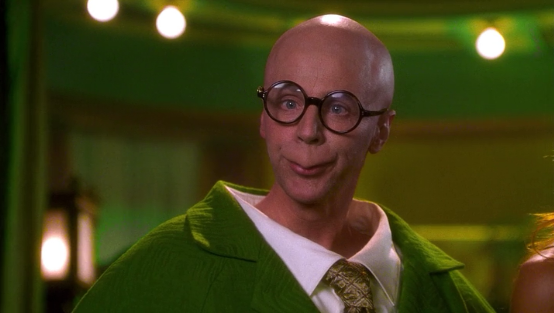The FAR digs deep and finds the true stories behind gritty classics, long movie endings, sell-out indie bands, who funds your favorite documentaries and that ultimate 9/11 conspiracy theory: what really happened at the Turtle Club that day?
Truly, thanks to scb0212 and Miller for contributing this week. Send articles throughout the next week to ploughmanplods [at] gmail, post articles from the past week below for discussion, and Have a Happy Friday!
Variety‘s Addie Moorfoot reports on the recent boom in the documentary industry and finds some filmmakers asking if there’s a downside:
With more buyers in the marketplace on the development side, the money available to filmmakers for budgets and license fees ballooned. That significant jump in paydays gave a number of documentarians the safety net they needed to continue to innovate. “When I was starting out, it was like you either had a sugar daddy who was helping you finance your films or you were making films in addition to your real job,” says two-time Academy Award nominee Liz Garbus, a 20- year industry veteran who directed Netflix’s first commissioned original documentary, 2015’s “What Happened, Miss Simone?” “Now people know that they [can] make documentary filmmaking a career. They can start out as an assistant, become an associate producer, and then get out into the field. The whole industry has become really mature.”
At Uproxx, Mike Ryan talks to screenwriters and investigates why movies today take forever to end:
The unanimous consensus, and most obvious answer, is movies feel too long now because they have to set up potential sequels. Movies can no longer “just end” and leave some loose threads up to the viewer. Everything has to be resolved in order to set up the next story. “Movies now complete the ending so much that they actually start the next thing,” says one prominent screenwriter. “So many movies now end with the beginning of the sequel.”
FAR favorite Nick Pinkerton examines Solute favorite The Phenix City Story for Film Comment:
While some kind of a romantic subplot, often perfunctorily treated, was generally expected in even the most macho of genre product, Karlson’s work is distinguished by the attention that he gives to male-female relationships. Because of this, the pull towards violent action in Karlson’s films is counterweighted by present or potential domestic happiness, as the women struggle to dissuade their men from a course of potential destruction or diffuse building tension. In Karlson’s filmography, frenzy and hysteria are decidedly masculine traits.
At Texas Monthly, Sean O’Neal gets deep into the Butthole Surfers at the quarter-century mark of their surprise hit single “Pepper,” which rose the band to national fame before destroying them:
Like Nirvana’s clip for “In Bloom,” the “Pepper” video suggested the band didn’t totally mean it—that the Buttholes approached their fluke pop-stardom with sarcastic amusement, even disdain. “Pepper” is a dark song about kids, among them racists and an “ever-present football rapist,” dying in car crashes and knife fights, after all. The music video intersperses its variety-show shenanigans with a faux newsreel of Haynes, doing his best Charles Manson, being arrested at a Texas motel. There’s a brief moment, approaching the three-minute mark, when Haynes cocks his head at the camera and the devil comes out—a flash of danger that reminds us this “cinnamon and sugary” sing-along is just an ironic glaze on the band’s usual abject ugliness. Still, “Pepper” rankled the band’s diehards, who couldn’t understand how the Butthole Surfers went from being the punk scene’s wildest freak show to rubbing MTV elbows with Jamiroquai and the Goo Goo Dolls.
And in a spectacular feat of debunking and uncovering the truth, Brian Feldman gets to the bottom of the legend of The Master Of Disguise‘s 9/11 vigil for Defector:
IMDb’s trivia is crowdsourced and reviewed by editors, but does not offer source citations. According to snapshots in the Internet Archive, the 9/11 trivia was added to The Master of Disguise‘s IMDb page sometime between October 2009 and April 2011. The only other piece of IMDb trivia predating that one is that the role of Pistachio was originally offered to Jim Carrey, an assertion that itself seems unlikely given that Dana Carvey co-wrote the film and that it was produced through his friend and fellow Saturday Night Live cast member Adam Sandler’s Happy Madison production company. (An IMDb spokesperson stopped responding to my requests for information about how trivia makes its way onto the site after I explained that this piece was about the 9/11 thing.)

